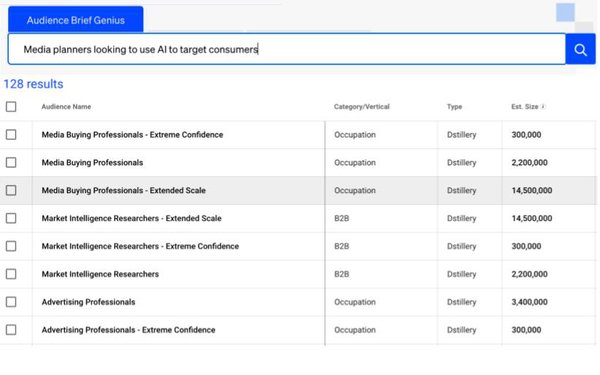
Artificial intelligence (AI) increasingly is being used to reduce
the amount of data required to successfully target ads online.
Through a partnership with Similarweb, which is known for providing website traffic and performance data, Dstillery will
train its generative artificial intelligence (GAI) technology, named ID-free.
The privacy-by-design predictive ad-targeting solution does not use identifiers.
Web
visualization patterns train the technology, which learns from general consumer behavior signals and contextual data that can be applied to ad targeting campaigns. The AI understands how every website
visit is used in real-life journeys, and not limited by the content of the website.
Adding Similarweb's dataset to its tech stack, Evan Hills, chief commercial officer at Dstillery, has
improved predictive capabilities by combining behavioral and contextual data. It provides an in-depth view of aggregated journeys throughout the internet.
advertisement
advertisement
Hills explained how the
technology relies on sophisticated machine learning (ML) and generative artificial intelligence (GAI) similar to OpenAI’s ChatGPT, and is built using generative pre-trained transformer
models.
“We have been playing with the technology since 2018, but the challenge has become determining how to use it across demand side platforms (DSP), and supply side platforms
(SSPs),” he said.
Dstillery has no interest in identifying users. The data is contextual in the sense that it makes decisions from user IDs without traditional semantic analysis.
Instead, it attempts to identify sites across the internet where consumers have a high propensity for the behavior the brand seeks.
The technology predicts the best places across the internet
to serve ads that have a high propensity for a specific behavior without targeting an individual user.
Targets combine URLs, time of day, and more. The signals are based on privacy by design.
There is no personal data.
“We expect these signals will remain in most bid requests in the future,” he said. “You can’t expect a pizza place in New York City to
advertise in San Francisco. Folks need to be able to deliver in the market that’s relevant to them.”
When asked about metrics and measurement, Hills said, it’s not
Dstillery’s job to grade its own work, but believes it is the company’s job to optimize based on whatever key performance indicators (KPIs) clients believe are important.”
“We are about to launch into a brave new world, so measurement for a solution designed to reach the non-addressable or non-authenticated impression in a future cookieless state becomes very
important,” he said. “We need to support any signal, so we are looking at some of the other sustainable metrics.”
Hill sees the promise and the potential of Google’s
Privacy Sandbox Attribution Reporting API, but said it has been a little more difficult than anticipated to get up and running.
Dstillery believes AI will help the advertising industry get
over its attachment to tracking browser cookies, but it is unknown whether or not the rest of the industry will get there.
“If we take privacy regulators and martech companies at their
word, the intent is to reduce the amount of data companies can use,” he said. “We believe the best way to deliver ads and drive performance through the decline of data is to build stronger
machine learning.”
